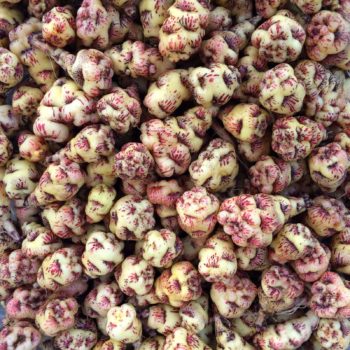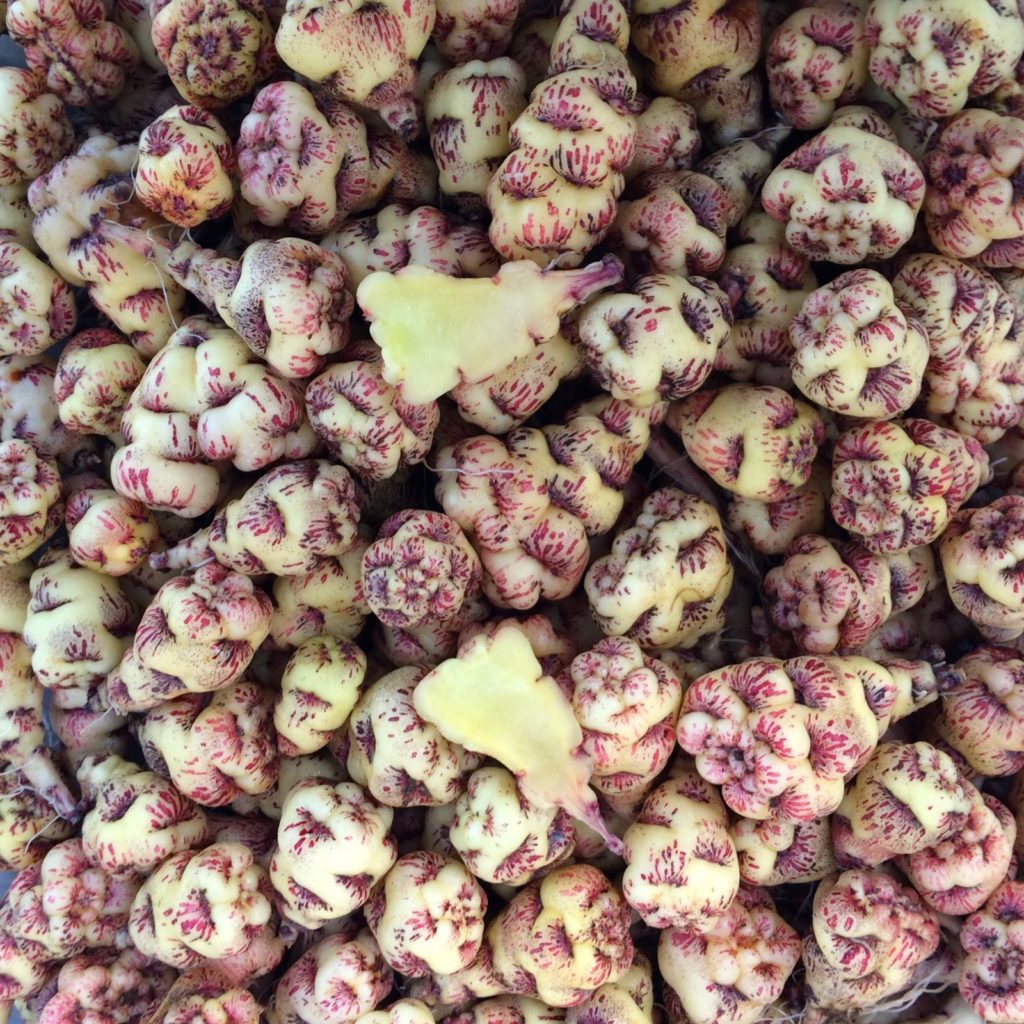Blog, mashua (Tropaeolum tuberosum)
Ken Aslet Mashua (Tropaeolum tuberosum) Tests Positive for Viruses PVS and PVY
Ken Aslet is the most common and popular variety of mashua, although it has traditionally been sold as an ornamental rather than an edible. It has never looked quite right to me, but it tested negative for the most common viruses that infect mashua in the United States. I recently tested plants more widely out of curiosity and got positive results for both Potato Virus S (PVS) and Potato Virus Y (PVY). To the best of my knowledge, neither virus has ever been reported in mashua before, which is why I have never tested for them before now. The initial tests were done with Agdia Immunostrips and I followed up with an ELISA confirmation test for PVY. I have not done a confirmation for PVS, because I don’t generally test for PVS by ELISA and don’t have the materials on hand. In both cases, low intensity results suggested low titers. Serological tests for PVS have been noted to give a low indicator positive for some strains of Potato Virus M, so that is also a possibility.

These results were replicated for Ken Aslet from both of the sources that we originally acquired it from, so I strongly suspect that all Ken Aslet currently available in the USA is infected. It is possible that these viruses were introduced here, as both PVS and PVY have been present here in potatoes in the past. However, tests of other mashua varieties, including those that have recently been grown adjacent to Ken Aslet, were negative. That suggests that the infection is not new.
Because of this, I don’t recommend growing Ken Aslet near other mashuas or potatoes and it might be better not to grow it at all. PVS and PVY are viruses that are common worldwide in potatoes and some other plants, so there is not extreme risk, but it is always better not to allow viruses to spread if you can avoid it. I have this variety established in tissue culture and possibly already clean, although I will now need to test to confirm that. I will reintroduce the variety when it tests clean for these viruses. In the meantime, I will send samples off for professional testing to confirm or clarify the diagnosis.
Update: I have now tested our entire mashua collection and found not a single positive for these viruses in any other variety. That is really interesting. I will try to preserve some infected plantlets in tissue culture in case a researcher should come along who wants to look into this in the future.

